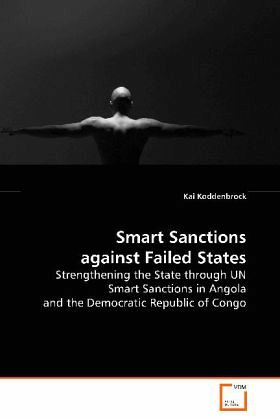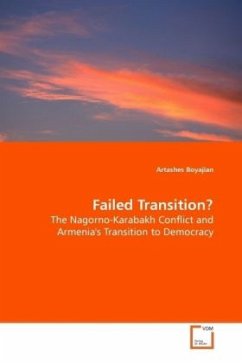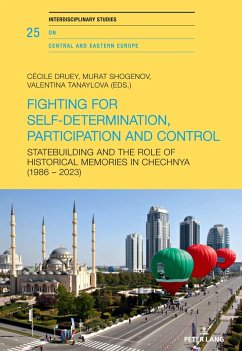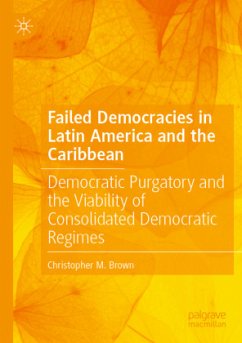
Smart Sanctions against Failed States
Strengthening the State through UN Smart Sanctions inAngola and the Democratic Republic of Congo
Versandkostenfrei!
Versandfertig in 6-10 Tagen
39,99 €
inkl. MwSt.

PAYBACK Punkte
20 °P sammeln!
Smart sanctions have been a frequent but supposedlyineffective UN instrument of conflict resolutionsince the end of the Cold War. While most sanctionsthinking focuses on sanctions against consolidatedstates with unwanted governments, this bookillustrates how smart sanctionscan be used to prop up governments in failed statesin Sub-SaharanAfrica. These failed states are characterised by thelack of a monopoly on violence and plagued byrebellions which are largely financed through naturalresource sales and foreign support. The authoranalyses the sanctions regimes in Angolaand the Democratic Republ...
Smart sanctions have been a frequent but supposedlyineffective UN instrument of conflict resolutionsince the end of the Cold War. While most sanctionsthinking focuses on sanctions against consolidatedstates with unwanted governments, this bookillustrates how smart sanctionscan be used to prop up governments in failed statesin Sub-SaharanAfrica. These failed states are characterised by thelack of a monopoly on violence and plagued byrebellions which are largely financed through naturalresource sales and foreign support. The authoranalyses the sanctions regimes in Angolaand the Democratic Republic of Congo to gauge theirimpacton political support, supply structures and themilitary balance of the deadly conflicts there. Heargues that in particularthe advocacy component of smart sanctions regimes -the panel of expert reports and connected diplomaticactivities - is able to contribute to their success.Thanks to this component the ensemble of armsembargos, financial, travel and commodity sanctionscan play a crucial role in depriving the rebels offunds and means needed to sustain their rebellion.This may enable statehood to return.












